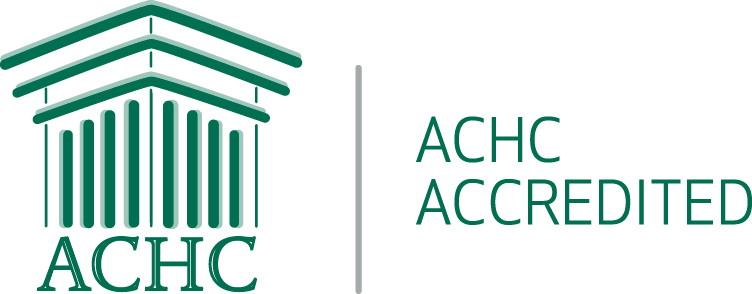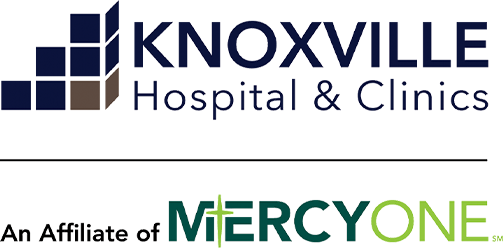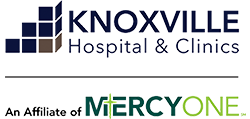Sleep
Disorders Program
Someone keeping you up at night?
You may be one of 70 million Americans
Did you have trouble sleeping last night? If so, you are not alone! You may be one of 70 million Americans with a sleep disorder. Untreated, a sleep disorder can put you higher risk of heart disease, diabetes, depression, obesity, and more. Fortunately, most sleep disorders are treatable once diagnosed. Knoxville Hospital & Clinics’ Sleep Disorders Program is here to provide the tools to end your sleepless nights.
Do you have a sleep disorder?
A sleep disorder can be a very serious issue with wide-ranging implications. If not treated properly, it can lead to increased accidents, mood disorders, lowered productivity, and more. People who suffer from sleep disorders may have symptoms of:
- Snoring
- Breaks and pauses in breathing while sleeping
- Trouble falling asleep or staying asleep
- Urge to move legs or uncomfortable feeling in legs at night
- Excessive sleepiness during the day
- Reduction in concentration, memory, and attention
If you are experiencing any of these symptoms, your primary care provider may refer you to the KHC Sleep Disorder Clinic for further testing to determine if you have a sleep disorder.
The Sleep Disorders Program sees both adult and pediatric patients with a variety of sleep disorders.
There are many classifications of sleep disorders. Here are some of the most common ones.
- Obstructive sleep apnea: A life-threatening disorder that causes you to stop breathing repeatedly during your sleep.
- Periodic limb movement syndrome: When people’s legs or arms jerk during sleep.
- Restless leg syndrome: A persistent, sometimes overwhelming need to move one’s legs while resting.
- Insomnia: Difficulty in falling and staying asleep.
- Narcolepsy: Characterized by the brain’s inability to control its sleep/wakefulness cycle.
- Parasomnia: Nightmares, sleepwalking, sleep talking, and bedwetting.
Sleep studies provide the answer
One of the best ways to help diagnose a potential sleep disorder is to have a sleep study, or polysomnography, an exam that allows doctors to monitor and evaluate you while you sleep.
During a sleep study, electrodes transmit and record your sleep patterns and specific information about your physical activities, such as breathing, brain waves, heart activity, and eye and muscle movements. The recording techniques are non-invasive and all electrodes are applied on the skin surface. The entire process is painless.
Some sleep studies are done in your own home; however, some are required to be done in the hospital.
Preparing for your sleep study
If your sleep study involves an overnight stay in the KHC sleep lab, we focus on providing the comforts of home. Patients who participate in a sleep study at KHC enjoy a private room and bathroom and a Sleep Number bed alongside state-of-the-art equipment necessary to diagnose sleep problems.
On the day of your sleep study, you should:
- Try to follow your regular routine as much as possible
- Avoid napping
- Eliminate use of caffeine after lunch
- Shower
- Avoid using hair spray or gel that can interfere with the sleep recording
- Speak with your primary care provider if you are on regular medication; your provider will determine whether any medication should be temporarily discontinued
When it is time for you to report for your sleep study, bring any items that you may need for your nightly routine. You may want to bring:
- Comfortable pajamas or clothes to sleep in
- A toothbrush, toothpaste, and hair brush
- Makeup remover
- Reading materials
- Clean clothes for the next morning
Sleep study processing and results
When you arrive for your sleep study, a sleep technologist will ask about your sleep habits and there may be a pre-sleep questionnaire for you to fill out. The technologist will attach sensors, which are glued or taped, to your body. These sensors will monitor your body while you sleeping. Please make sure to tell the technologist if you are allergic or sensitive to any adhesives.
After the sensors have been attached and until it is time for you to go to sleep, you are free to move around the room, read, or watch TV. When you go to sleep, the lights will go off and a low-light video camera will allow the technologist to see you from a nearby room. At the start of the test, you will be asked to move your eyes, clench your teeth, and move your legs. This will help make sure the sensors are working. If a sensor comes loose or you need to use the bathroom during the night, the technologist will help you move around with the wires.
For sleep studies done at KHC, we partner with Practical Sleep Services and Melisa Coaker, MA, MD, for the diagnosis and treatment of sleep disorders.
After your sleep study, the data collected is analyzed by Dr. Coaker and staff to determine the nature of your sleep disorder. It will show information about sleep and wake times, sleep stages, abnormal breathing and movements, and the amount of oxygen in your blood. Results from the study will be shared with your primary care provider and can be used to diagnose conditions such as sleep apnea, narcolepsy, restless legs syndrome, and more.
If you have questions about the Sleep Disorders Program, contact the Respiratory Therapy department at 641-842-1465.
Commitment To Excellence
The Knoxville Hospital & Clinics is accredited by Accreditation Commission for Health Care (ACHC) for compliance with a comprehensive set of national standards. By choosing a healthcare provider that has achieved ACHC accreditation, you can take comfort in knowing that you will receive the highest quality of care. If you have any concerns about the product or service that you received from the Knoxville Hospital & Clinics, you may contact ACHC directly at (855) 937-2242.


